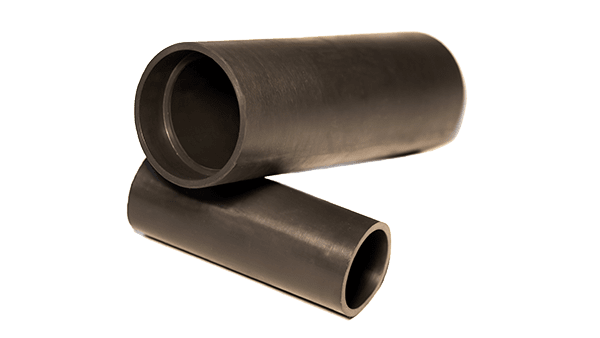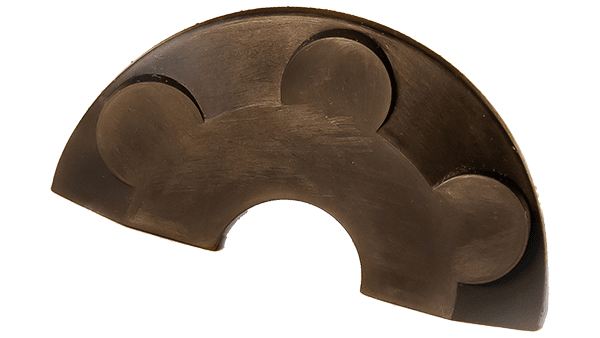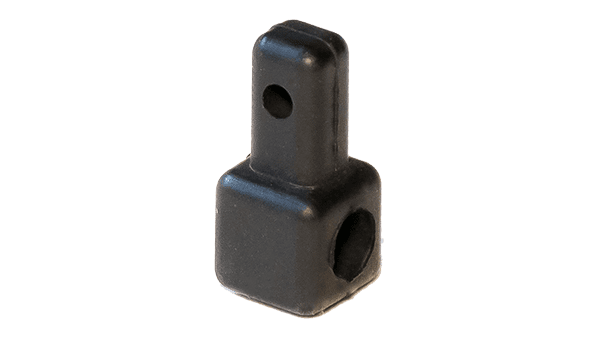
Viton Material Manufacturer
Gaskets, O-Rings, Seals, Tubing & More
If fuel or oil is present in your application, Viton may be the right rubber material for your business. Timco Rubber provides businesses with custom-designed Viton gaskets, seals, and other parts to address the specific needs of your applications.

Viton: A Rubber Compound for Fuel and Oil Applications
Viton rubber, a specific fluoroelastomer polymer (FKM), was introduced into the aerospace industry in 1957 to fulfill its needs for a high-performance elastomer. Following its introduction, the usage of this material spread quickly to other industries. These days, Viton seals, o-rings, and others rubber parts are now used regularly in the automotive, appliance, chemical, and fluid power industries thanks to its natural resistance to both fuel and oil.
In addition to fuel and oil resistance, Viton rubber gaskets and other parts has a strong reputation as a high-performance elastomer that can operate in very hot and extremely corrosive environments. These capabilities make Viton a natural choice for parts that need to succeed in demanding environments.
At Timco, we can design and provide custom Viton parts made for your specific needs. Our team works with you to identify an exact solution based on your performance, assembly, and budget needs. Whether you need a molded gasket material or sealing products that are die cut to specific lengths, we can help you invest in the perfect Viton parts for a wide variety of applications.

Viton Properties
- Common Name: Viton®, Fluro Elastomer, FKM
- ASTM D-2000 Classification: HK
- Chemical Definition: Fluorinated Hydrocarbon
- Resistances
- Abrasion Resistance: Good
- Tear Resistance: Good
- Solvent Resistance: Excellent
- Oil Resistance: Excellent
- Aging Weather/ Sunlight: Excellent
- Temperature Range
- Low Temperature Usage: 10°F to -10°F | -12°C to -23°C
- High Temperature Usage: 400°F to 600°F | 204°C to 315°C
- Durometer (Hardness): Range 40-90 Shore A
- Tensile Strength
- Tensile Range (P.S.I): 500-2000
- Elongation (Max %): 300
- General Characteristics
- Adhesion to Metals: Good
- Compression Set: Good
- Resilience/ Rebound: Fair

Viton Applications
Aerospace & Aircraft Industry
- Radial lip seals
- Manifold gaskets
- Cap seals
- T-Seals
- O-rings
- Siphon hoses
Automotive Industry
- Gaskets
- Seals
- O-rings
- Fuel hoses and tubing

Viton Benefits & Advantages
- Fuel and oil compatibility
- Compatibility with many other chemicals, including vegetable oils, alcohols, diluted acids, and more
- Can be made to perform continuously at 204°C and even after short excursions to 315°C
- Certain grades of Viton can also perform equally well in temperatures as low as -40°C
- Certain materials are FDA compliant and meet FDA requirements for food and pharmaceutical applications
- Meets strict environmental regulations in regard to emissions, spills, and leaks, especially when compared to some other elastomers
Viton Rubber FAQs
Q: What is Viton rubber and what are its primary uses?
Viton Rubber is a specific brand name for a high-performance synthetic fluoroelastomer polymer (FKM). The particular material was developed by DuPont and initially used to survive demanding conditions for aerospace applications.
Viton is highly regarded for its exceptional resistance to high temperatures, chemicals, oils, and fuels, making it a go-to solution for environments where durability and reliability are essential. These qualities make Viton a preferred choice for industries where its robust properties can ensure optimal performance and longevity of components like seals, gaskets, and O-rings.
Q: What are the main properties of Viton rubber?
Viton Rubber possesses a range of superior properties that make it ideal for high-stress applications, including those in hot, corrosive environments. These qualities include extreme heat resistance, outstanding chemical resistance, and tremendous physical durability.
Q: What are the common applications of Viton rubber?
Viton is utilized across numerous industries due to its ability to meet the stringent demands of various high-performance applications. Thes applications include:
- Automotive components, including seals and gaskets for engine components, fuel systems, and HVAC systems.
- Aerospace fuel hoses, seals, and other critical parts.
- Chemical processing equipment, including seals, valves, and liners.
- Oil and gas seals, gaskets, and O-rings for pipelines, drilling equipment, and processing facilities.
- Electrical insulation for components exposed to high temperatures and chemical environments.
- Industrial machinery, including vibration dampers.
Q: How does Viton Rubber differ from other types of rubber like EPDM or nitrile?
Viton rubber, EPDM (Ethylene Propylene Diene Monomer), and nitrile rubber are all synthetic elastomers that boast different properties. Viton and EPDM are both physically tough materials that can withstand regular wear and weathering, but EPDM struggles with exposure to oils and petroleum. Nitrile doesn’t fare nearly as well with weathering, but shares Viton’s ability to withstand exposure to oils and fuel.
Q: What are the temperature limits for Viton rubber?
Viton is highly regarded for its high-end temperature resistance, with a top limit of up to 600 degrees Fahrenheit and low end of -10 degrees depending on formulation. This material can be made to withstand continuous exposure after 400 degrees.
Q: Is Viton rubber resistant to oil and fuels?
Viton is highly resistant to oil and fuels, providing top-end performance for applications that demand protection against permeation and early part failure. This resistance includes a wide range of oils and petroleum-based products. The chemical inertness of Viton also reduce risks of cracking, selling, and other issues cause by exposure, making it a reliable solution with an impressive lifespan.
Q: Can Viton rubber be used in food and medical applications?
Viton can be used in both food and medical applications. Viton can be formulated to meet FDA requirements, making it a viable option for both clean room applications such as lab equipment and seals, tubing, and other parts needed for processing equipment.
Q: What are the advantages of using Viton rubber over natural rubber?
Viton offers several benefits over natural rubber, most notably a resistance to chemicals, oils, and fuels. Viton also has a better temperature range, along with several features that allow it to withstand exposure to difficult environments.
Q: Can neoprene rubber be recycled, and if so, how?
Yes, EPDM can be recycled at an appropriate facility. Recycling processes typically involve grinding the rubber into smaller particles, which can then be reused in products like mats, playground surfaces, and other rubber goods. Some facilities specialize in chemical recycling, breaking down EPDM into its constituent monomers for repolymerization.
Interested in Viton® rubber for your application?
Call 1-888-301-4971 to find out more, or get a quote.
Not sure which material you need for your custom rubber product? View our rubber material selection guide.
Want to make sure that Timco is the right partner for all your Viton part requirements?